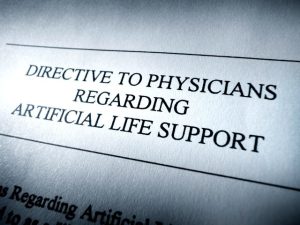Imagine if an accident or illness – or simply the effects and process of aging – leaves an individual unable to tell medical providers the kinds of medical treatments they want to receive.
While no one can predict when situations like this may occur, they are inevitable and do affect many individuals and family members. A medical power of attorney (POA) involves a legal document that lists and specifically names one person as the health care agent of another person.
The agent has the capabilities of making health care decisions and has the responsibility of making certain that doctors and other medical personnel provide the appropriate care according to the wishes of the patient.
Each individual does not know if he/she will be capable of making health care decisions regarding his/her care, so ensuring that the medical treatment(s) are listed in a professional document that specifies the exact treatment modalities desired involves great practice and planning.
The medical power of attorney assists in taking the uncertainty and guesswork out of the medical care for each individual when one is unable to choose on his/her own.
The following are important reminders when considering a medical power of attorney:
- Who makes medical decisions if there is no power of attorney?
- Does a medical power of attorney override a living will?
- How is a medical power of attorney different than a durable power of attorney?









